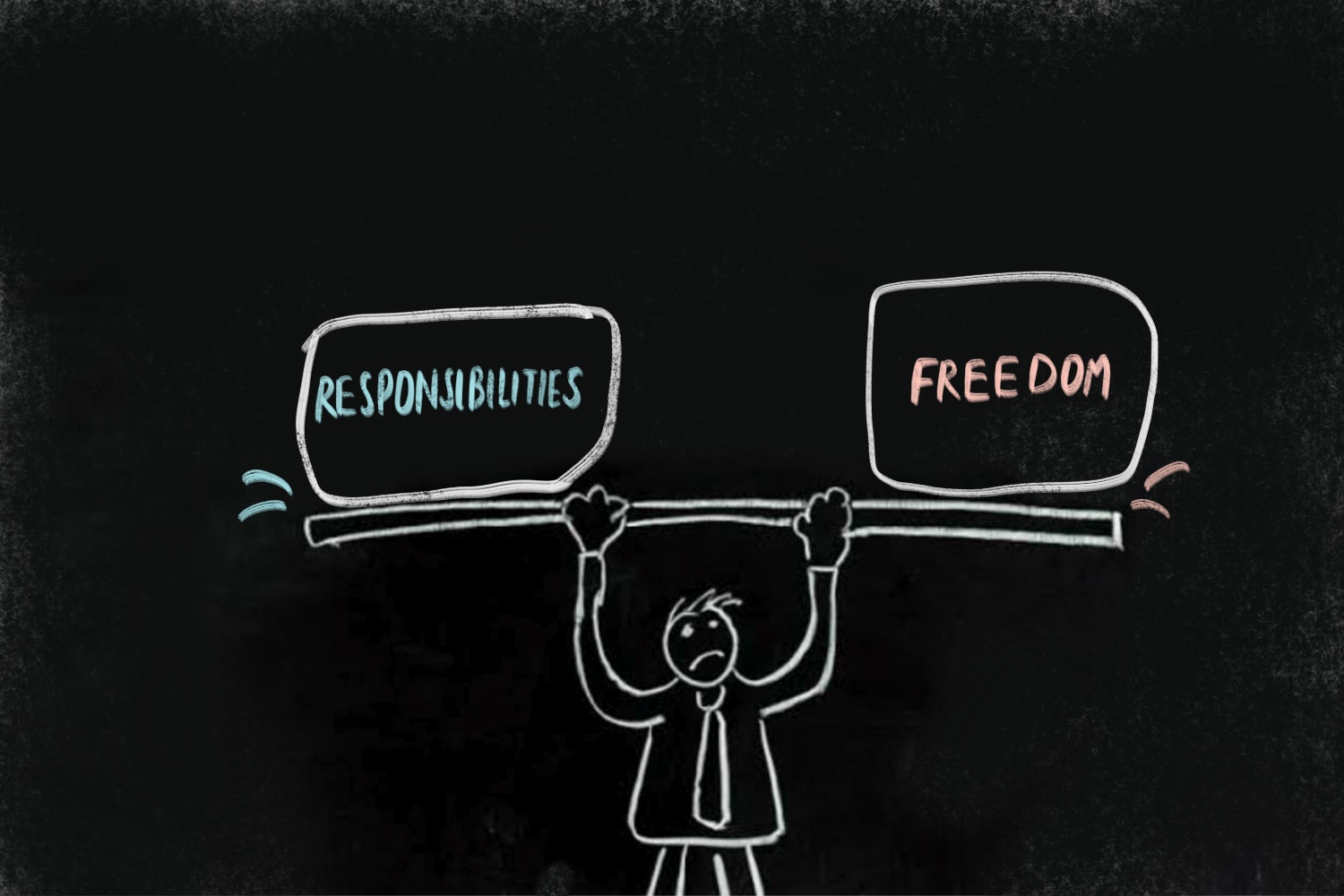The right to swing my fist ends where the other man’s nose begins.
JS Mill
Herein, comes the concept of responsibility. While Freedom is the ability to set schedule, be able to decide on the work we do and to make decisions, Responsibility is being held accountable for actions. It might involve figuring out how to get paid for work, owning mistakes or having others count on us. Freedom without responsibility is certainly tempting, Responsibility without freedom is stressful. Both go hand in hand.
Try this: when you’re seeking more freedom, the surest long-term route is to take more responsibility. In a situation where we are focusing on us versus virus, we have to compromise some rights and freedoms for the time being for fulfilling our greater individual and collective responsibilities.
Having said that, to protect our collective right to health in the current pandemic situation, we need to balance our individual freedom with collective responsibilities for keeping the virus at bay. In order to fully implement human rights, we need to place more emphasis on the responsibility of all actors, and not just states, to take action together to make sure rights are enjoyed, if not today, once the virulent crisis ends. Even if all governments were taking efficient action, but individuals didn’t co-operate, the crisis would not be averted. Our right to health, but also rights to liberty, freedom of movement, to education, to information, to food and shelter are all in jeopardy.
In order for everyone to enjoy these rights, all actors socially connected to this problem and able to act must practice responsibilities that are not always well defined. To protect our collective right to health, we may need to recognize that we have a right to freedom of movement, but also a responsibility not to travel in certain circumstances; a right to education, but a responsibility to accept that it may be suspended temporarily or delivered on-line. We have the freedom to workout in gym, but for the time being enjoy a quiet yoga session at home!
Some states are doing a far better job at exercising responsibility than others. The irony is that they have curtailed few freedoms of the citizens, or requested for it and are implementing it. But responsibilities do not stop with national governments—they also exist for state and municipal governments, health care institutions, the media, non-profits, universities, and down to the individual.
At the individual level, our responsibilities in the face of the COVID-19 crisis include the responsibility to wash hands, to stay at home, to cover mouths and noses when coughing or sneezing, but also to be informed and not to panic or spread rumours. In fact, not hoarding is also a social responsibility. Social distancing is a must.
Consider this example: we can not be using N95 masks. Let us keep that for healthcare workers, COVID positive people, frontline workers. We can definitely wear homemade masks. That is also our individual responsibility.
Our biggest responsibility may be to figure out how to convert this crisis into a step forward for global governance rather than a step away from it.



Get Social